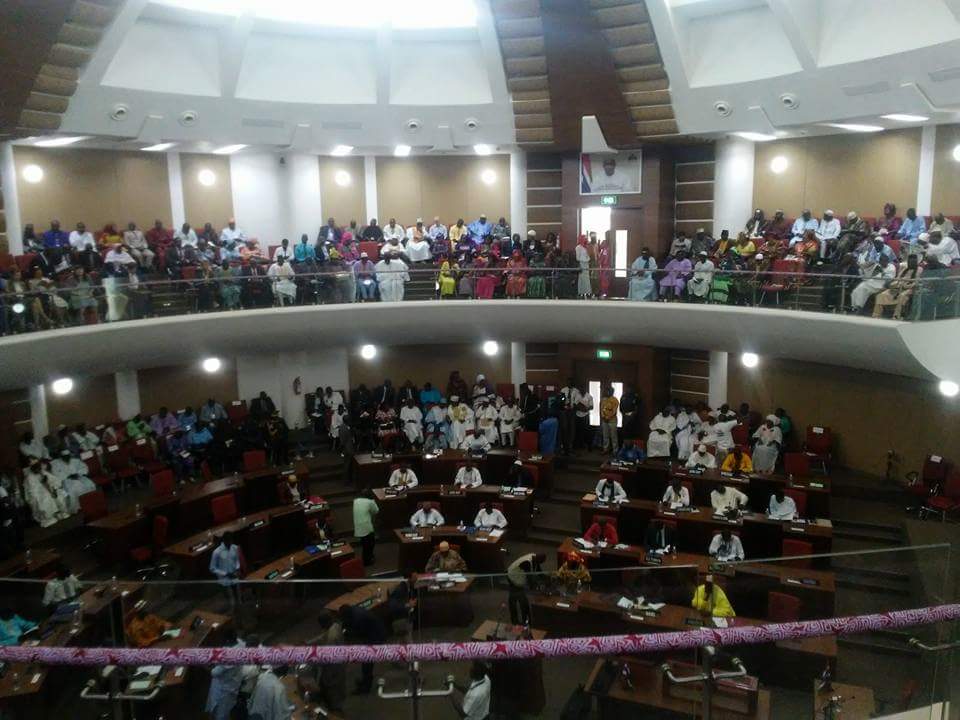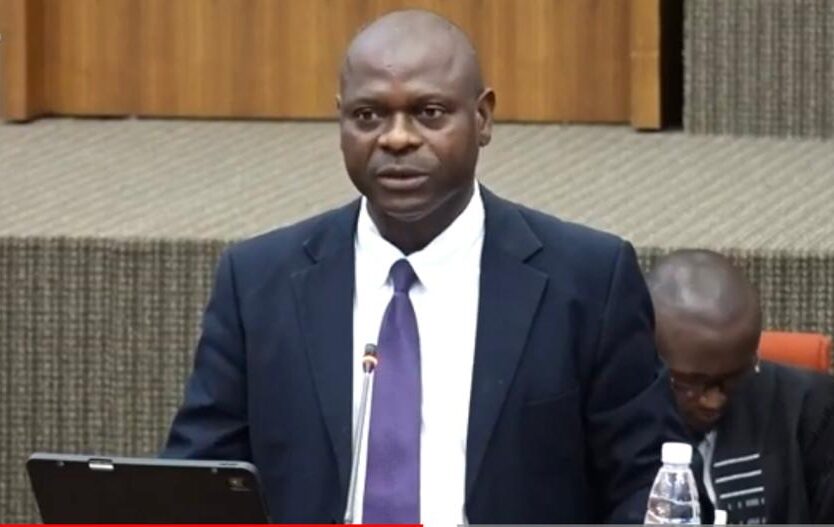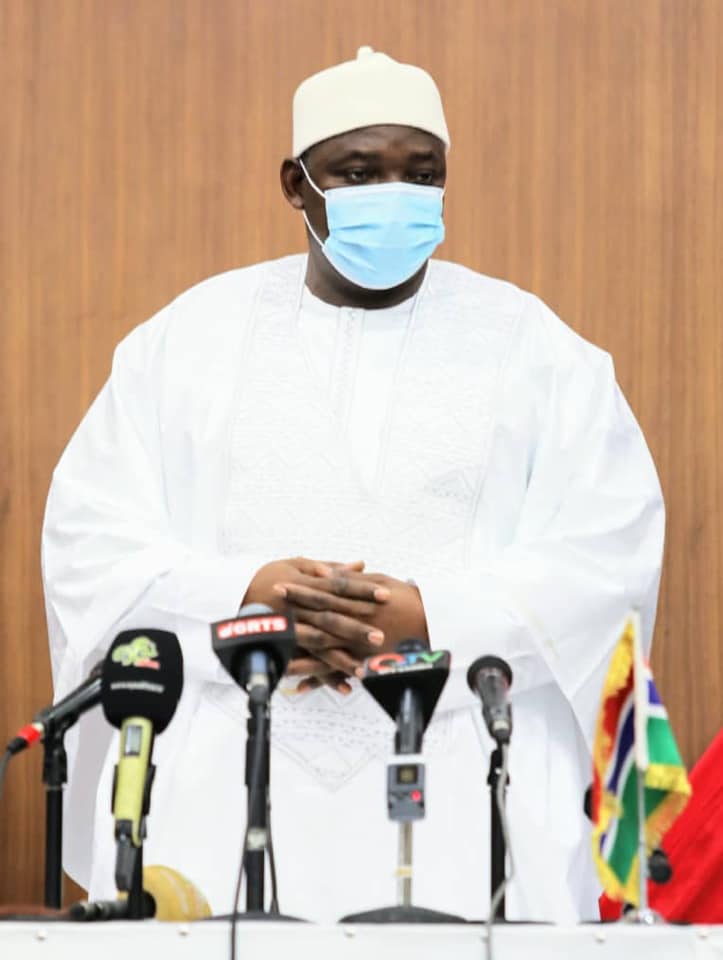The National Assembly Members (NAMs) did a great service for the country by carefully scrutinizing the Supplementary budget submitted by the Ministry of Finance. The same scrutiny should be extended to the ill-designed 2019 budget.
In anticipation of this 2019 budget, I published an article last week where I outlined some sensible and implementable proposals that would enable the government to finance the announced 50% increase in government salaries rather than merely running up expenditures without any regard to how that would increase the nation’s indebtedness to unsustainable levels. Key among the proposals was getting rid of the Ministry of Defense and substantially reducing the size of the Ministry of Foreign Affairs.
A close look at the proposed 2019 budget shows that the expenditures are not reflective of the development priorities of the country. Important sectors that should receive high funding priorities are instead receiving only a small fraction of resources that are allocated to ministries that are of limited importance to the development needs of the country at this point in time.
The drafting of the National Development Plan (NDP), just like the various sector strategies, go through endless fanfare and quickly get forgotten until five years later when the recycle is repeated. The complete disregard of the NDP’s priorities by the proposed 2019 budget is a repeat of this venerable and useless tradition.
Just like the Jammeh regime, Barrow’s government has decided to maintain the large budget of the Ministry of Defense for two consecutive years now. Specifically, the Ministry of Defense has been allocated about D700 million in the 2019 budget. This figure is virtually unchanged from last year. It appears that all the recent talk about the security sector reforms is just empty talk.
There have been some initial discussions about reducing the size of the military but apparently those promises have already been forgotten. The pointless charade of the review of security sector policy has not resulted in any significant change in the sector as this budget clearly shows, and as I have predicted. So, waste in the defense ministry continues unabated.
The most visible demonstration of this waste in the Ministry of Defense is the flamboyant lifestyle of the Chief of Defense Staff, General Kinteh, who (along with other senior army officers) needlessly maintains a large number of soldiers as guards at his compound who spend the whole day brewing Attaya there under the mango tree.
And every day, General Kinteh is escorted by an entourage of at least 3 official vehicles – a motorcade that no minister in the cabinet enjoys. And this is for a sub-cabinet level position.
The other inexplicable decision in the 2019 budget is the D1 billion allocation made to the Ministry of Foreign Affairs. This is a significant increase from about D689 million from last year.
This increase could only be explained by the decision of the government to not only maintain useless and expensive embassies in places such as Russsia, Venezuela and Cuba, but also open new ones.
To compound this expensive folly, these embassies are over-staffed with SIS agents and military attaches. The fact remains that it does not make sense strategically for The Gambia to be maintaining a large number of embassies.
A guide towards gauging how many embassies we really need is looking at the number of foreign embassies that are located in The Gambia. A large of number of foreign missions that serve The Gambia do so from Senegal.
This makes sense given the low strategic importance of The Gambia to most countries, as well as their recognition of the cost of maintaining large number of individual missions.
The excessive expenditures at the Ministry of Foreign Affairs has been high for so long that it has been noted by the International Monetary Fund as one of the expenses that need to be cut to bring the country’s expenditures to a sensible level.
The Ministry of Higher Education is expected to receive D243 million. As discussed in other places, it does not make sense to duplicate costly positions with two separate ministries of education. The higher education sector in The Gambia is too small to be allocated a ministry. At most, what it needs is a directorate within the Ministry of Basic and Secondary Education (MOBSE). Savings from folding this unnecessary ministry into MOBSE could help finance salary increases for a large number of teachers, for example.
Agriculture remains our most important sector. And it is a sector that is perennially underfunded despite bilateral and multilateral assistance.
In the proposed 2019 budget, the Ministry of agriculture is receiving only about a quarter (22%) of the budget that is allocated to the Ministry of Foreign Affairs. How is this paltry allocation reflective of our development priorities when large amounts are being wasted at non-essential ministries? As I have mentioned above, it seems none of our agriculture ministers are able to conceive of actions in the sector that goes beyond buying fertilizers for farmers at the beginning of the rainy season and buying groundnuts at harvest.
Given the realities of climate change and the fact that fluctuations in our GDP is almost completely dependent on rainfall levels, it would seem obvious that the agricultural sector’s resilience needs to be strengthened by reducing our current 100% reliance on the increasingly unpredictable rainfall patterns through investments in sector-relevant infrastructures. This, somehow, seems completely lost on Barrow’s appointments to this key ministry.
It is important to consider these allocations in the 2019 budget in the context of the recent major fiscal decision made. The Ministry of Finance proposed to increase the pay of government workers by 50%. While it is true that these workers badly need a pay increase, the Ministry went about it in a financially irresponsible way.
It can be easily be demonstrated that this recent salary increase can be completely financed by simply re-allocating expenditures from some non-essential ministries. For instance, the abolition of the Ministry of Defense saves about D700 million (I am aware that the process of closing the Ministry of Defense needs to be done carefully and gradually).
A 50% reduction from the Ministry of Foreign Affairs can save another D500 million (in fact, the amount that should be reduced from the Ministry of Foreign Affairs is far more than this). The resulting D1.2 billion is approximately equal to the amount that can finance the 50% increase in salaries of government workers.
In other words, we can avoid exacerbating our already high debt burden while simultaneously helping to increase the efficiency of our public sector through better compensation.
Recently, President Barrow announced that many development projects will be coming online that will be funded by resources pledged by donours.
It appears that the President believes that the task of developing the countries should be the responsibility of the foreign donours rather than us. After all, with such a budget allocation that does not speak to our development challenges, what development results can we expect? Should we be wasting the resources we have now while the hard-work of financing our development be outsourced to donours?
Among the root causes of this budget and economic mismanagements is decisions by Barrow to recycle previous ministers from the Jammeh regime: Mamadou Tangara and Mambury Njie. While I have written at length about the unsuitability of Mambury Njie, a few words are in order about Mr. Tangara. It appears that Mr. Tangara has been on a spree of opening and staffing diplomatic missions around the world that make no sense for the strategic priorities of the country.
It is the responsibility of minister of Foreign Affair to ensure that the activities of that ministry are consistent with the development needs of the country. Simplistic maximization of the number of Gambian missions abroad is not a goal in itself.
Developing and managing The Gambia’s relations with other countries is a means to an end. When the cost of opening and maintaining those diplomatic missions abroad become prohibitive, they no longer make sense.
Ultimately, the responsibility for the appointments of Mambury Njie and Tangara falls squarely on President Barrow since this is his decision. There is nothing wrong with re-appointing ministers from previous regimes. However, these should be individuals who not only demonstrated accomplishment during their previous tenures but are able to replicate those in the current regime. But is the current reality what we voted for two years ago?
Author: Dr. Ousman Gajigo




